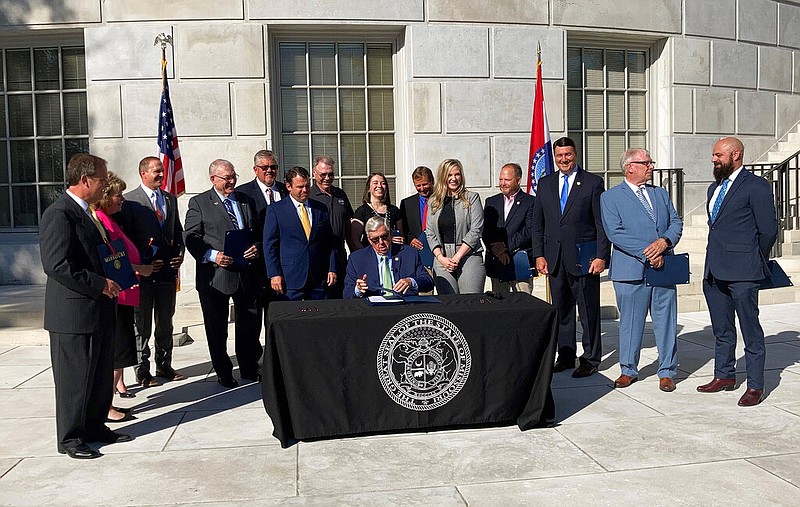Missouri Gov. Mike Parson signed a local government omnibus bill, parts of which limits local public health orders and prohibits vaccine passports, into law Tuesday.
House Bill 271, introduced by state Rep. John Wiemann, R-O'Fallon, contains a number of measures designed to provide greater transparency for local and county government. The bill creates a statewide local government expenditure database to be maintained by the Office of Administration, salary adjustments for some local elected officials, and increased authority for county commissioners, among other measures.
"Even though the bill is a little bit bigger than it was when Rep. Wiemann sent it to the Senate, there truly are a lot of good things in this bill, and I'm really proud of it and the way it turned out," said state Sen. Sandy Crawford, R-Dallas County, who carried the bill through the Senate.
The bill originally had 28 amendments added in the Senate, but five were rejected, leaving 23 amendments that were added.
"Normally when we do omnibus bills you're always a little bit nervous about what's being added on that may not necessarily be good," Wiemann said. "I can tell you those 23 amendments are solid, good government, local government bills."
Wiemann said he has been trying to get his local government transparency bill through the Legislature for the last three years.
Parson said he's been an advocate for local government control during his time as governor, but there was some overreach at the county and municipal level throughout the pandemic.
"When this pandemic occurred, there was overreach on the local levels, and we've seen it in different parts of the state, and there's going to be consequences to that," Parson said. "That's exactly why this bill was voted out of the legislative body to make sure people are transparent and they're accountable for their actions."
The bill states that local political subdivisions can only issue public health orders that restrict access to specified locations, like churches, businesses or schools, for 30 days in a 180-day period when the governor has declared a state of emergency. These orders can then be extended more than once by a simple majority vote by the local governing body. If a state of emergency hasn't been declared by the governor, public health order restrictions can only last 21 days and require a two-thirds majority vote by the local governing body to be extended.
Parson said a majority of health officials around the state took a balanced approach to their pandemic response and that it is important that local people are involved in decision-making, even during a pandemic or crisis.
The legislation also prevents county and municipal governments from requiring proof of COVID-19 vaccination to access public goods like transportation.
Parson said the legislation addresses needs beyond the current pandemic and will be used to understand how local government can best respond to future issues.

